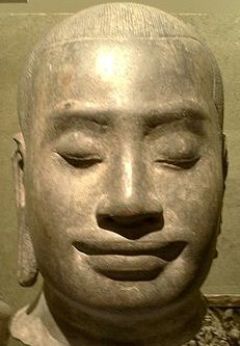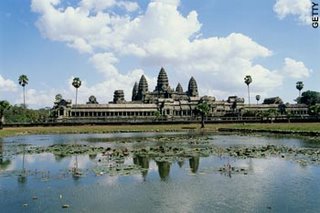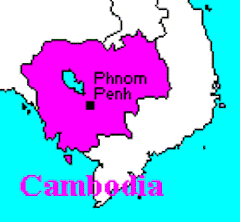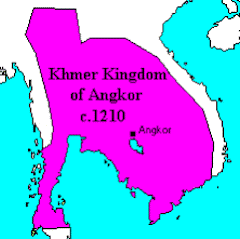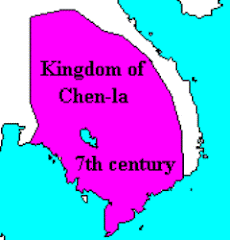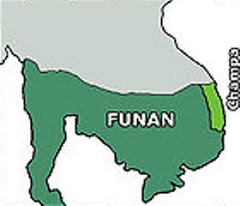 In 2006, the International Republican Institute (IRI) and the Youth Council of Cambodia (YCC) developed and produced the Youth Leadership Challenge (YLC), an innovative reality television show that combines entertainment with valuable learning opportunities for the youth of Cambodia. Contestants – ages 18 to30 – have been recognized as future civil society and political leaders, and have demonstrated a sincere desire to participate in the future of their country.
In 2006, the International Republican Institute (IRI) and the Youth Council of Cambodia (YCC) developed and produced the Youth Leadership Challenge (YLC), an innovative reality television show that combines entertainment with valuable learning opportunities for the youth of Cambodia. Contestants – ages 18 to30 – have been recognized as future civil society and political leaders, and have demonstrated a sincere desire to participate in the future of their country.Now in its fourth season, the show engages Cambodians age 30 and younger – who currently represent 70 percent of the population – through television entertainment, the most popular medium in the country. Prior to each season 16 participants – eight young men and eight young women – are chosen for the competition. Applicants are chosen based on their leadership skills, confidence and knowledge of democratic principles.
In each episode participants are randomly divided into two teams that compete in civil society-themed challenge. The challenges provide an opportunity for contestants to participate in leadership activities, such as fundraising for orphanages, collecting signatures for a petition drive and public speaking. The contestants also showcase different civic society building activities and community activism that encourages those who follow the show to participate in their communities.
Prior to each challenge, contestants receive training from experts on the skills they will need to complete. For example, to prepare for the mock court episode young Cambodian lawyers and judges coached the teams on court procedures and how to build and research a court case; for an episode where each team created a television commercial encouraging Cambodians to vote a television producer trained the contestants on how to create effective television commercials.
At the end of each show, the two teams are judged by the United Nations Development Fund for Women’s Goodwill Ambassador Chea Samnang, and the Center for Social Development Executive Director Theary C. Seng on their planning, implementation and performance of the task. The losing team then selects two members that they think should leave their team and the two are then asked to “go home,” as the show’s catch-phrase goes.
Between episodes, contestants chose a volunteer activity that gives back to the community. Activities have included: purchasing computers for an impoverished school in a rural area, books for elementary schools and orphanages, toys for children at the Phnom Penh school for the deaf and blind, and a monetary donation to a local nongovernmental organization that provides vocational training to homeless children. During season two’s final episode all of the season’s contestants come together to donate sponsorship money and toys to a Cambodian orphanage. In one of the episodes in season four contestants cooked dinner for a local orphanage where the show took place. Due to the popularity of the show many local businesses donate financial resources for these activities.
In the final episode of each season the two final contestants compete in a final challenge live on air and the Cambodian public votes on the winner using SMS technology.
 Soksan Hing was YLC’s first winner and paved the way for the leadership development training in Washington, DC. Soksan has pledged most of his life to educating youth on human rights and anti-corruption, using different activities to encourage youth to participate in his forums including sporting activities. Since the show Soksan has taken leadership positions in different local nongovernmental organizations and worked to help energize youth to participate in Cambodia’s 2008 parliamentary elections.
Soksan Hing was YLC’s first winner and paved the way for the leadership development training in Washington, DC. Soksan has pledged most of his life to educating youth on human rights and anti-corruption, using different activities to encourage youth to participate in his forums including sporting activities. Since the show Soksan has taken leadership positions in different local nongovernmental organizations and worked to help energize youth to participate in Cambodia’s 2008 parliamentary elections.Norin Tauch survived eight rounds of competition and succeeded in beating out 15 candidates to win the title of “best youth” for season two. Norin earned a degree in law from the Royal University of Law and Economics and is working as an Assistant Operations Executive for Casino Lava Management.
Lalune Sreang became the first female to win YLC, during the final competition of season three. She received more than 3,000 text message votes from television viewers. Lalune is pursuing a degree in environmental studies at the Royal University of Phnom Penh. Upon winning she said, “I think it is a very good program that provides a great opportunity for young Cambodian people to exhibit their talents and abilities. I now feel more confident in making decisions and facing challenges. Also, I learned how to improve my weaknesses and have the courage to face difficulties.”
Each season’s winner receives a two week trip to the United States to develop leadership skills. The trip exposes the winner to leadership development, message development, public opinion polling, international media, youth organizations, fundraising, international organizations, the American political system, technology, and business development. Winners have met with local, state, and federal elected officials, campaign organizations, media representatives, Youth Service America, Youth for Tomorrow, the United States Agency for International Development, the U.S. State Department, National Endowment for Democracy, National Democratic Institute, and the Hudson Institute.
The Youth Leadership Challenge has steadily grown in popularity and is now aired during prime time on Cambodia’s most popular television station, the Cambodian Television Network, with highlights broadcast on a weekly news program and replays of the show are in syndication. In addition, millions of television viewers have learned about civil society, community service and democratic concepts through the show.

.JPG) Students' activities were happy with reading and playing puzzle in new library opened by Young Generation for Development
Students' activities were happy with reading and playing puzzle in new library opened by Young Generation for Development.jpg) Mr. Hing Soksan was interviewed in VOA studio during the trip to USA
Mr. Hing Soksan was interviewed in VOA studio during the trip to USA Judges and contestants gather in the boardroom to decide who will be"going home" at the end of each episode of Youth Leadership Challenge.
Judges and contestants gather in the boardroom to decide who will be"going home" at the end of each episode of Youth Leadership Challenge. .JPG)

